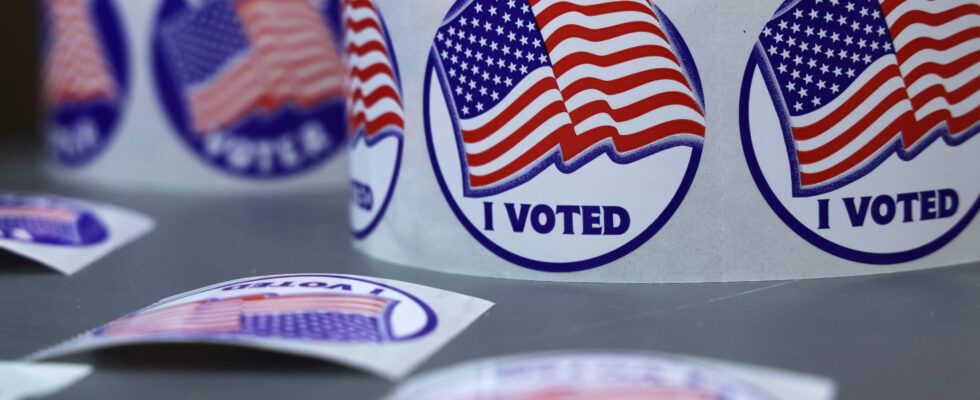(BFM Bourse) – The year 2024 will be punctuated by numerous electoral events around the world, including the vote in the United States which is a major source of concern for American investors, according to a study by Janus Henderson.
The year 2024 will be full of electoral deadlines. Starting in January, voters in Taiwan will go to the polls on the 13th of the month to choose their leader. This election in the semiconductor superpower will mark the start of this political marathon in 2024.
All eyes will obviously be on the United States, which is the nerve center of global financial markets, with 60% of the world’s stock market capitalization. In less than 365 days, Americans will be called to the polls to elect their president, indirectly, for the next four years. As in 2020, there is a good chance that Star-Spangled Banner voters will make their choice between Donald Trump and Joe Biden. However, it remains to go through the stage, and not the least important, of the primaries.
This major election should not overshadow other elections, in Russia, India and the European Union. It is therefore 20% of the world’s population, or 40% of the world economy, which is expected to go to the polls next year, recalled eToro in a previous note.
“Investors have reluctantly adapted to a new normal characterized by great geopolitical and economic uncertainty, but the surprises of the 2023 elections, from Poland to Argentina, remind us of their ability to move markets and change the “policy direction”, Ben Laidler, Global Markets Strategist for eToro. The markets pay close attention to the evolution of a country’s leaders, especially if the state in question is over-indebted and struggling with unsustainable inflation like Argentina.
The recent victory of liberal Javier Milei at the head of Argentina last week was a catalyst for the rise of Merval, the Buenos Aires Stock Exchange index. The flagship index of the Argentine market soared by 20% on Tuesday, for its first session under the Milei era, and increased by more than 40% over a week, compared to its closing price last Friday at 645,079.59 points. .
A “potentially at risk” election year
It is therefore on the eve of a potentially tumultuous electoral year that Janus Henderson conducted his survey among 1,000 American investors with $250,000 or more in investable assets, with a view to understanding their state of mind in a difficult political climate, a volatile market and an unstable economic environment. And the results of this study show that the current political landscape is a significant source of anxiety for these American investors.
Nearly half (49%) of investors surveyed say they are very concerned about the impact that the 2024 US presidential election will have on their finances, with persistent inflation only cited in second place (35%), followed by the risk of recession (29%), rising interest rates (27%) and finally the poor performance of the stock market (20%).
The fears are met head-on by what seven in ten investors see as an increasingly difficult market. Given this, it is perhaps not surprising that as many investors are concerned about their finances (34%) as they are very confident in achieving their goals (36%).
Older investors more worried
Notably, it is older investors who say they are more concerned about the election than younger ones. Nearly 7 in 10 investors (69%) aged 75 and over say they are very worried about the 2024 US presidential election, compared to only 37% of millennials, a term referring to 25-40 year olds.
“Despite investor concern over the 2024 US presidential election, the results have never been a reason to exit the financial markets,” says Matt Sommer, Head of Specialist Consulting Group at Janus Henderson Investors.
“In fact, looking at S&P 500 returns from 1937 to 2022, the average annual return has been 9.9% in presidential election years and 12.5% in non-presidential election years. not had an election,” he adds.
Sabrina Sadgui – ©2023 BFM Bourse
